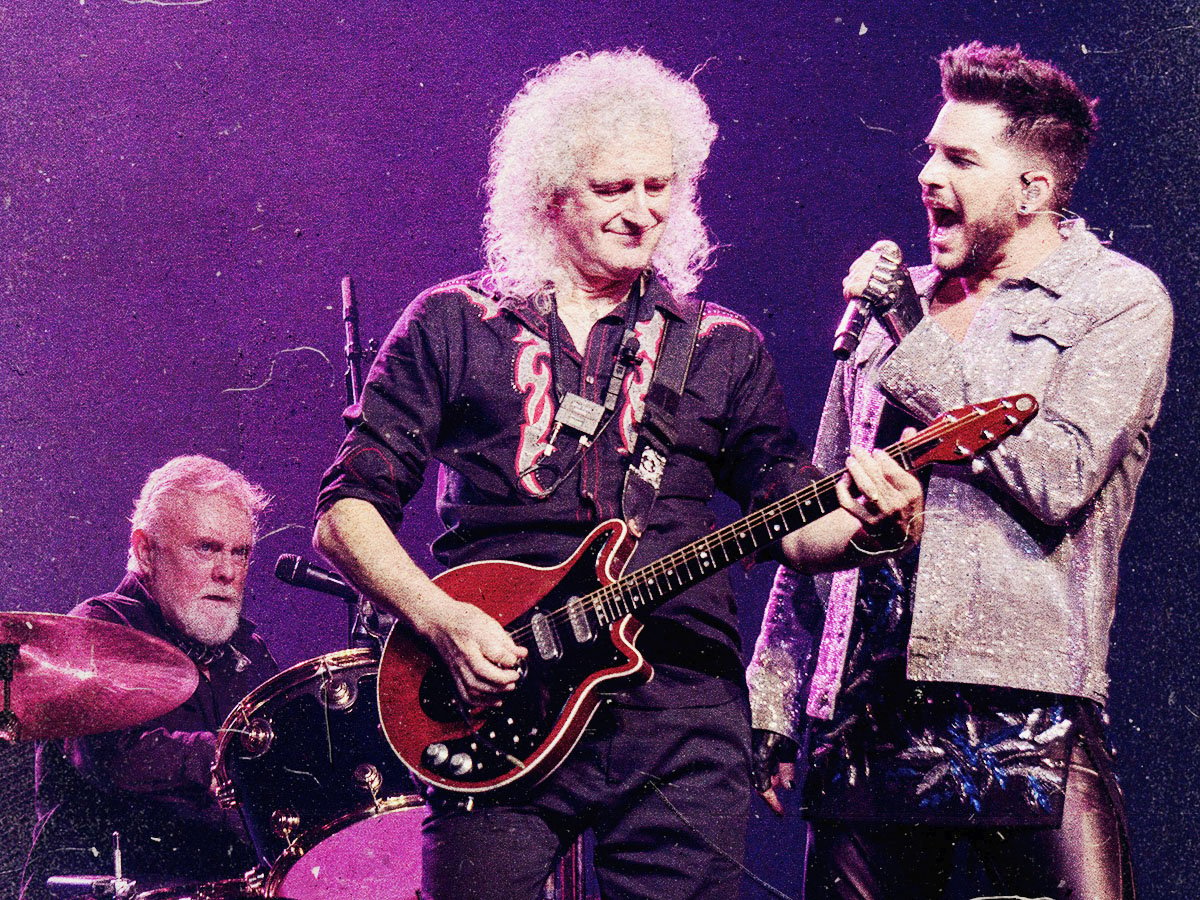First things firsrt: this brief outburst of negativity – while seemingly aimed at former American Idol runner-up and undeniably talented singer/performer Adam Lambert – is really more of a rant about the 21st-century proliferation of unnecessary media and the way we seem completely incapable, in our current pop cultural whirlpool, of leaving it well enough alone.
Specifically, this shameless hit piece is motivated by one specific and weirdly resonant memory of being in the back of an Uber in Chicago four or five years ago, and spending 20 minutes as a captive audience to that particular driver’s preferred soundtrack for the journey: Queen and Adam Lambert’s 2020 album, Live Around the World. I believe it was the portion of the compilation that included ‘Another One Bites the Dust’, ‘Fat Bottomed Girls’ (featuring the Dallas Cowboys Cheerleaders, apparently??), ‘Don’t Stop Me Now’, and ‘I Want to Break Free’, which I definitely did by that point.
Was this music terrible? Horrific? Unbearable? Not really. Was Lambert’s performance an insult to the memory of the late, great Freddie Mercury? No, not at all. The biggest takeaway from the experience was more of a strange, overriding bewilderment.
Certainly, if you wanted to go to a live concert and hear Queen songs, then choosing to see Queen with Adam Lambert, or any local Queen tribute act, for that matter, makes sense. These are the best options available in a world where Freddie Mercury is no longer with us. To choose to listen to this version of Queen in your car, however, when Freddie Mercury’s Queen is equally accessible and one button-push away, is comparatively stupefying. It’s like hanging up a Xeroxed printout of the Mona Lisa when you’ve got the original packed away in your closet. What is the point of this? Is a lesser approximation of a great thing appealing simply because it happened more recently? Did Adam Lambert actually unearth something in these old songs that Mercury never did?
Obviously, it’s pointlessly rude to label Mr Lambert in this headline with the title of “worst replacement singer in rock history”, because the criticism here actually has very little to do with his tenure as the frontman for Queen, or his ability to sing Queen songs in an entertaining fashion. Lambert actually handled that assignment well, with class, and deserves kudos for taking on such an enormous challenge, especially when Paul Rodgers had already proved it was a thankless job.
Being the replacement frontman, across the entire history of rock, is almost always an invitation to unfair scrutiny. Sammy Hagar was instantly reviled by a segment of the Van Halen fan base when he took over for ‘Diamond’ David Lee Roth, but many of those same people were clamouring for Hagar to come back once Gary Cherone took the reins. Similarly, Ronnie James Dio had the impossible task of replacing Ozzy Osbourne in Black Sabbath, but managed to win over enough fans to create a sort of respectful division in the band’s audience between Ozzy and Dio devotees.
In recent years, a lot of bands have learned that rather than bringing in big-ego singers from other groups to replace a departed frontman, the better move is to recruit a younger, comparatively unproven talent that the older members of the band will be able to wrangle a bit easier. And where better to find a person like that than the worlds of YouTube and reality TV talent shows?!
Journey famously found their replacement for the temperamental Steve Perry in a young YouTuber named Arnel Pineda, a Filipino singer with an uncanny knack for hitting those difficult Perry notes. Around the same time, INXS reformed after the death of original singer Michael Hutchence by hosting its own reality competition on American TV, eventually hiring the winner, JD Fortune, to take over that role from 2005 to 2011. Lambert, meanwhile, first rose to fame as an American Idol contestant in 2009 and first performed with Queen on the same show, inspiring his later recruitment into the band in 2011.
In most of these cases, there have been concerted efforts from the old dudes in each band to work with the new singers on writing material and releasing new music, for better or worse. Adam Lambert has yet to get this chance with Queen. He’s been a hired gun tasked with navigating the old hits and filling arguably the most unfillable shoes of any singer in rock history. He has succeeded, too. Queen sold out big theatres and sold a lot more records. And yet, here we are, complaining about the whole concept and blaming the singer for doing what he was asked to do. Maybe I just heard the wrong portion of that live album.






